Studio Two, EMI Studios, Abbey Road
Producer: George Martin
Engineer: Geoff Emerick
The recording of ‘Penny Lane’ was completed during this session, which began at 7pm and finished at 12.30am the following morning.
Two sets of session musicians had previously contributed to the song, but Paul McCartney wasn’t satisfied with the results. On 11 January 1967 he had seen David Mason performing Bach’s Brandenburg Concerto on the the BBC 2 television series Masterworks, and decided to enlist him for this session.
He saw me playing Bach’s Brandenburg Concerto Number 2 in F Major with the English Chamber Orchestra from Guildford Cathedral. The next morning I got a call and a few days later I went along to the studio. I took nine trumpets along and we tried various things, by a process of elimination settling on the B flat piccolo trumpet.We spent three hours working it out. Paul sang the parts he wanted, George Martin wrote them out, I tried them. But the actual recording was done quite quickly. They were jolly high notes, quite taxing, but with the tapes rolling we did two takes as overdubs on top of the existing song. I read in books that the trumpet sound was later speeded up but that isn’t true because I can still play those notes on the instrument along with the record.
The Complete Beatles Recording Session, Mark Lewisohn
Mason added his solo in the middle eight onto track three of the four-track tape. For the flourishes towards the end and a seven-note coda, he was recorded onto track two, erasing the oboes from the 12 January session.
Three mono mixes of ‘Penny Lane’, numbered 9-11, were created immediately after Mason’s contributions were complete. The last of these was deemed to be the best, and was copied and sent to Capitol Records in the US. This was pressed onto promotional discs which were sent to radio stations.
However, new mixes were made on 25 January 1967, removing the trumpet coda. Capitol substituted the mixes in time for the release of the single, but Mason’s seven-note coda was still widely heard.
Also on this day...
- 2017: George Harrison vinyl collection box set announced
- 1990: Paul McCartney live: Wembley Arena, London
- 1969: UK album release: Yellow Submarine
- 1967: John Lennon begins writing A Day In The Life
- 1964: The Beatles live: Olympia Theatre, Paris
- 1963: The Beatles live: Majestic Ballroom, Birkenhead
- 1963: The Beatles live: Cavern Club, Liverpool
- 1962: The Beatles live: Cavern Club, Liverpool (evening)
- 1962: The Beatles live: Cavern Club, Liverpool (lunchtime)
- 1960: Stuart Sutcliffe sells a painting to John Moores
Want more? Visit the Beatles history section.

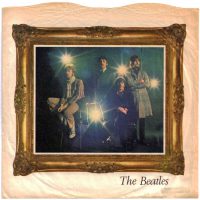
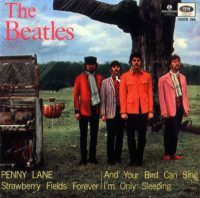
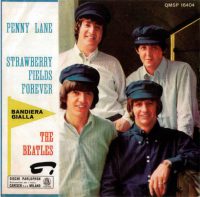
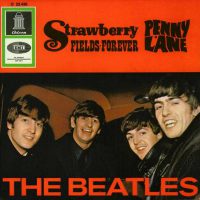
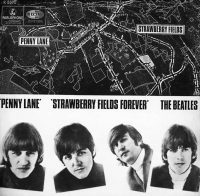
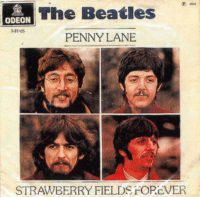
“However, new mixes were made on 25 January 1967, removing the trumpet coda. Capitol substituted the mixes in time for the release of the single, but Mason’s seven-note coda was still widely heard.” Creating one of the best Beatle curios of all-time!